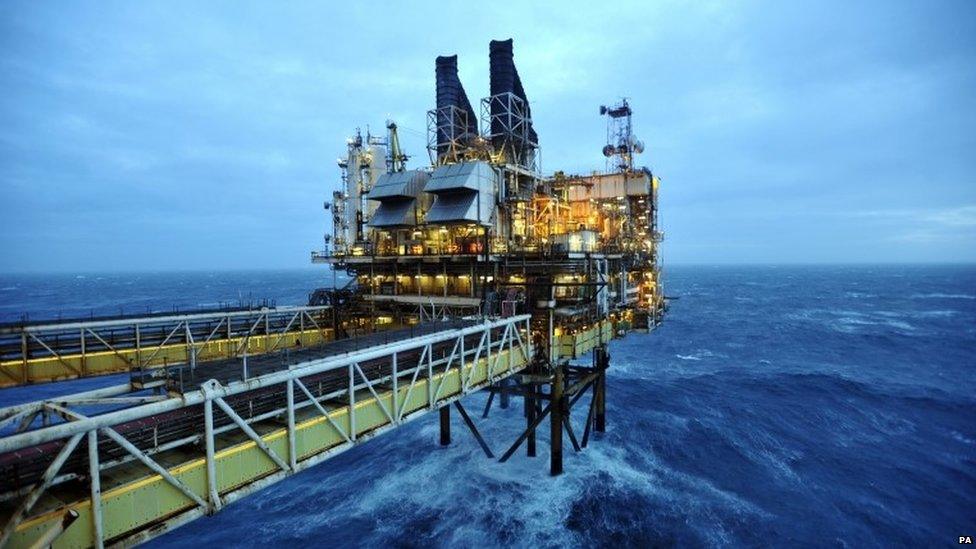BP hit by tumbling world oil prices
- Published
- comments

In the final three months of 2014, the cost of a barrel of Brent crude was $77. In the final three months of 2015, it was $44.
Today it is $34. That is the background to today's results from BP.
Bob Dudley, BP's chief executive, told me two weeks ago that he expected the oil price to rise as high as $50-60 a barrel by the end of the year, as the oil majors desperately cut production and demand grows from China and the US.
Global supply and demand, at least from his company's point of view, will be in better balance, he argued.
It is clear from the strain the low oil price is putting on BP that another year of falling prices will mean yet more job losses in both the upstream (oil exploration and production, including the North Sea) and downstream (refining and sale of fuel) businesses.
Both of the main engines of the business are now spluttering and puffing out uncomfortable-looking black smoke.
That will put fresh pressure on BP's dividend, vital to our savings and pension funds. For the moment, BP says it is wholly committed to maintaining the payments.
Most worrying for BP is that its upstream business fell to a $700m (£486.59m) loss in the final quarter of last year, compared to a $2.2bn profit for the same period in 2014.
Costs and investment have been cut and the company is carrying more debt to try and smooth the price drop cycle.
They are the tools any company would use when it sees the price of what it produces fall by nearly 40% over the last year.
Mr Dudley knows that upstream losses are not sustainable long-term and that cost cutting is about making BP "fit" for a lower-oil-price world.
Thousands more job losses have today been announced in the downstream business.
"We are continuing to move rapidly to adapt and rebalance BP for the changing environment," Mr Dudley said.
For BP, he must also hope he is right about the upward march of the oil price.